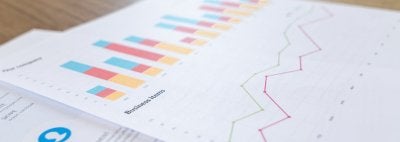

Quantitative Methodology: Measurement and Statistics, Ph.D.
The Quantitative Methodology: Measurement and Statistics, Ph.D. program is tailored for aspiring scholars seeking advanced training in research methods and statistical analysis. With a focus on generating and disseminating new knowledge in quantitative methodology, this research-oriented program prepares you for careers in any industry. You will learn to design and conduct research studies, analyze data using sophisticated statistical techniques, and interpret and present research findings effectively.
If you possess strong analytical ability and a passion for research, this program might be the right fit for you.
Key Features
- Research Focus: Engage in scholarly research activities aimed at advancing the field of quantitative methodology.
- Teaching Preparation: Gain the necessary skills to teach courses at the university level in applied measurement, statistics, and evaluation.
- Customizable Curriculum: Tailor your course of study with electives selected in consultation with your advisor to align with your research interests and career goals.
- Interdisciplinary Opportunities: Collaborate with faculty and students from diverse academic backgrounds to address complex research questions.
- Demonstrate proficiency in advanced quantitative research methods and statistical analysis.
- Conduct original research contributing to the body of knowledge in quantitative methodology.
- Effectively communicate research findings through scholarly publications and presentations.
- Provide leadership in the design, implementation, and evaluation of research studies in various settings.
Information on admissions and application to this program can be found on the University Graduate Admissions website.
You are required to submit all required documents before submitting the application.
Program Specific Requirements
- Letters of Recommendation (3)
- Graduate Record Examination (GRE)
- CV/Resume
- Writing Sample
Courses in this program are carefully selected from offerings of Quantitative Methodology: Measurement and Statistics program and other departments at the University. Your specific program of study will be structured to take into account your background and future aims.
quantitative methodology measurement and statistics Graduate Student Handbook
Program of Study
- QMMS 623: Applied Measurement: Issues and Practices (3 credits)
- QMMS626: Instrumentation (3 credits)
- QMMS646: Regression Analysis for the Education Sciences (3 credits)
- QMMS647: Causal Inference and Evaluation Methods (3 credits)
- QMMS651: Regression Analysis for the Education Sciences II (3 credits)
- QMMS655: Introduction to Multilevel Modeling (3 credits)
- QMMS657: Exploratory Latent and Composite Variable Methods (3 credits)
- QMMS722: Structural Modeling (3 credits)
- QMMS724: Item Response Theory (3 credits)
- QMMS779: Mathematical Foundations and Simulation Techniques (3 credits)
- QMMS787: Bayesian Inference and Analysis (3 credits)
- QMMS899: Doctoral Dissertation Research (12 credits)
You must select at least 21 credits of elective courses in consultation with your advisor. A minimum of 30 credit hours (including EDMS 899) must be taken following admission.
In addition to courses, you must complete a doctoral preliminary examination and a doctoral comprehensive examination and are expected to participate in research and publication. A faculty advisor may require courses beyond those specified here.
The many and varied professional interests of faculty members provide opportunities for presentations of research reports by students as well as faculty. Recent presentations by students have dealt with a variety of original research topics, in such areas as applied statistics, modeling of traits, test construction, test evaluation, and survey research.
Our faculty are chosen for their expertise and dedication; they provide exceptional guidance and support to foster your academic and professional success.
Gregory R. Hancock
Professor and Program Director, Distinguished Scholar-Teacher
1230D Benjamin Building
(301) 405-3621 | ghancock@umd.edu
Jeffrey Harring
Professor
1230E Benjamin Building
(301) 405-3630 | harring@umd.edu
Hong Jiao
Professor
1230C Benjamin Building
(301) 405-3627 | hjiao@umd.edu
Yang Liu
Associate Professor
1230B Benjamin Building
(301) 314-1126 | yliu87@umd.edu
Laura Stapleton
Professor and HDQM Chair
1230A Benjamin Building
(301) 405-1933 | lstaplet@umd.edu
Peter Steiner
Professor
1233 Benjamin Building
(301) 405-6396 | psteiner@umd.edu
Tracy Sweet
Associate Professor
1229 Benjamin Building
(301) 405-3623 | tsweet@umd.edu
Ji Seung Yang
Professor and Director of Graduate Studies
1225 Benjamin Building
(301) 405-6073 | jsyang@umd.edu
For more information, please contact:
Gregory R. Hancock, Ph.D.
Program Director
ghancock@umd.edu
For advising questions, please contact:
Tracy M. Sweet, Ph.D.
Director of Graduate Studies
tsweet@umd.edu